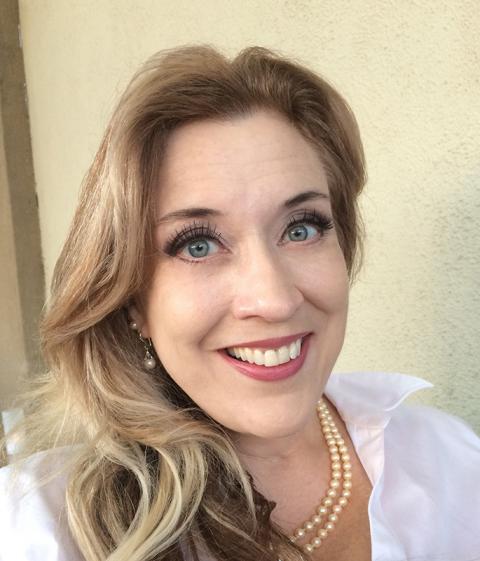Pickles, Lightbulbs, and Cheese: Sylvia Massy Shares Unconventional Recording Techniques

Producer, recording engineer, and author Sylvia Massy works with Berklee student bands and music production and engineering students as a visiting artist.
Image courtesy of the artist
Veteran producer and recording engineer Sylvia Massy has laid down tracks with the likes of Prince, the Red Hot Chili Peppers, the Black Crowes, Tool, and System of a Down, not to mention her work on Johnny Cash’s Grammy Award-winning album with producer Rick Rubin, American II: Unchained. Her latest project? Recording three up-and-coming Berklee student bands—Interstate, Morningbird, and Radio Calle 32—as a visiting artist with Berklee's Music Production and Engineering Department.
Massy is a recording industry Renaissance woman whose work outside of the studio includes everything from writing text for the technical Grammy bestowed on the family of Thomas Edison to authoring a book, Recording Unhinged, which anthologizes some of the more unusual techniques producers have employed to record music. The book, written with her partner, Chris Johnson, has since spawned coloring books (the Recording Unhinged Coloring Book and the Audio Icons Unhinged Coloring Book) that enable the crayon-minded to bring their own creative palette to some of the off-the-wall scenes recounted in the book—such as, for instance, producer Bob Ezrin taping Peter Gabriel to a post 10 feet above the ground to get a certain tenor of performance out of him for the song "Modern Love."
Watch a short film about Massy's approach to producing:
At Berklee for a week in late October, Massy shared some unusual recording techniques of her own, including sending the output from a solid-state amplifier through to a speaker via wiring that she ran through objects such as pickles, cheese, and a lightbulb, to experiment with the impacts of said objects on the captured sound. The final mix of the Morningbird song that Massy worked on, for instance, includes a guitar part recorded through connections to an electric drill and fluorescent lightbulb. Throughout, Massy was lighthearted while directing the recording space in Berklee's Shames Family Scoring Stage with a firm guiding hand, careful to understand the artists' intentions behind each song and then collaborating with them to bring those intentions to life.
Not long after her visit, Massy took the time to reflect on her work and her week at Berklee.
On how she began incorporating creative recording techniques:
"I guess it started when I was recording the band Tool and I was trying to get the most obnoxious sound possible. I thought I'd get an old piano and drop it off of a building and we’d record the crash. That would be a very obnoxious sound, but I couldn't get the record company to support that idea. So instead, I bought a couple of old, wrecked pianos and brought them into a studio that was agreeable, set up microphones, and then we just destroyed them with sledgehammers and shotguns. Then we took all those crazy, wonderful sounds and sequenced a piece for the end of the album Undertow. So it started there."
"I try to include some sort of unconventional recording in every session that I schedule. I believe that the sound of adventure is imprinted into the music." — Sylvia Massy
On her most memorable studio moment:
"It has to be the time I was recording with Johnny Cash on his Unchained album, with Rick Rubin producing. I was engineering. Tom Petty and the Heartbreakers was his backup band for that album. There were moments in the studio which I couldn't even believe I was there for…the members of Fleetwood Mac came in. The moment I remember most vividly is when Johnny, Tom Petty, and the other Heartbreakers were sitting in a circle at Studio 2 at Ocean Way, which is now called EastWest Studios, and they were joined by Mick Fleetwood and Lindsey Buckingham from Fleetwood Mac, and everyone sat in a big circle with acoustic guitars and Johnny on the microphone and recorded, live, a song that was written by Beck called 'Rowboat.' It was just a particularly wonderful moment because everyone connected musically. The sound in the air between them was magic."
On the importance of recording original sounds:
"So many people work off of prerecorded samples in sample libraries and work in the box, never actually recording any instrument on their own. The inventiveness of creating new sounds is something I recommend for everybody in the studio, especially now."
On working with Berklee student bands:
"All three bands [Interstate, Morningibird, and Radio Calle 32] are incredible, so already, I'm winning when I step in the room, because as long as I don't screw it up, the recording is going to be great. All I had to do was make sure I could capture the performances and not lose the excitement of the bands. The students were really inventive."
Listen to music by Morningbird:
Listen to a song by Interstate:
On advice for Berklee students:
"Don’t settle for mediocrity. Make sure that what you do stands out and has a creative edge to it. Don't be afraid to try new things or make mistakes because some of those mistakes might be the magic that you're looking for. The Berklee faculty, facilities, and programs are the best in the country and maybe in the world, so the students are in good hands. The community at Berklee is a very unique experience, so savor every minute of it."
